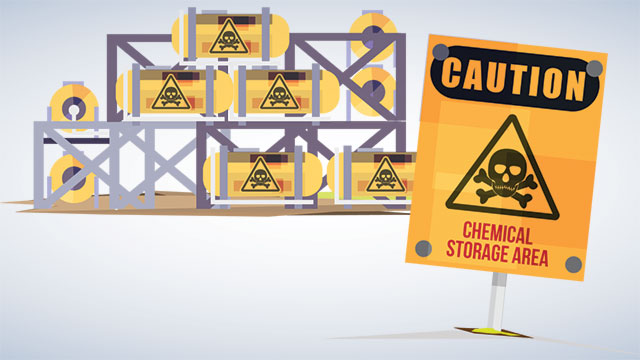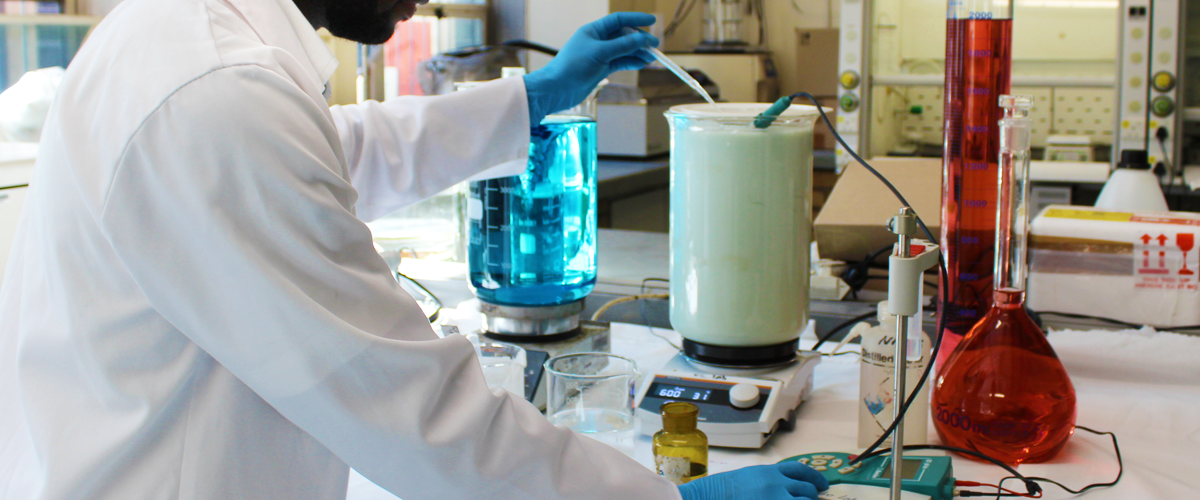

By the end of this training course, participants should be able to:
• Understand Key Laboratory Techniques
• Gain proficiency in essential chemical analysis methods used in the petroleum industry
• Learn the principles and applications of advanced instruments
• Perform accurate chemical analyses on crude oil, petroleum products, and additives
• Interpret and validate analytical data to ensure product quality and compliance with industry standards
• Implement quality control measures
• Enhance laboratory safety and management:
• Analyze and mitigate environmental impact
• Synthesize experimental results in the form of a professional report
The Program is ideal for a diverse range of engineers who are involved in quality control
and management, Specifically:
• Laboratory managers and supervisors
• Laboratory technicians and analysts
• Chemical engineers
• Quality control specialists
• Environmental engineers
• Oil and gas filed technical operators
The training methodology combines theoretical knowledge with practical application to ensure a comprehensive understanding of the chemical laboratory in petroleum industry. The approach is designed to cater to various learning styles and maximize participant engagement and retention.
Theoretical Instruction
• Lectures: Sessions to introduce key concepts and principles in chemical laboratory in petroleum industry. These lectures will include multimedia presentations to enhance understanding.
• Reading Materials: Comprehensive handouts will be provided to supplement the lectures and offer deeper insights into specific topics.
Interactive Learning
• Group Discussions: Facilitated discussions to encourage participants to share their experiences and perspectives, fostering collaborative learning.
• Case Studies: Analysis of real-world scenarios to apply theoretical knowledge to practical situations and develop problem-solving skills.
Workshops
• Workshops: Interactive workshops to explore specific topics in depth
Assessments and Feedback
• Quizzes and Tests: Periodic assessments to evaluate understanding and retention of the material covered.
• Feedback Sessions: Regular feedback from instructors and peers to identify strengths and areas for improvement, ensuring continuous learning and development.
Hands-On Training (On Job Training)
• Laboratory Exercises: Practical sessions in a laboratory setting where participants will conduct sampling and analysis using standard methods and equipments
• Field Work: On-site activities to collect samples and perform tests in real-world environments, giving participants practical experience in field techniques.
By integrating these diverse methods, the training program aims to equip participants with both the theoretical knowledge and practical skills necessary for effective assessment and management.
Module 1: Introduction to the Petroleum Industry
• Overview of the petroleum industry and its significance
• Key processes in the petroleum lifecycle (exploration, extraction, refining, distribution)
• Petroleum Composition and its Properties
• Classification of crude oil and gas types
• Physical Properties of crude oil and gas
• Chemical Composition of crude oil and gas
Module 2: Fundamentals of Chemical Analysis
• The role of chemical analysis in the petroleum industry
• Basic principles of chemical analysis
• Types of chemical analyses (qualitative vs. quantitative)
• Sample preparation techniques
Module 3: Laboratory Safety and Management
• Safety protocols and best practices in the laboratory
• Handling hazardous materials and waste disposal
• Laboratory management and documentation
• Module 5: Advanced Analytical Instruments
• Gas chromatographic analysis (GC)
• Ion chromatography analysis (IC)
• Inductively coupled plasma analysis (ICP)
Module 4: Crude oil analysis
• Carbon residue, Asphaltene content
• Density (Specific Gravity)
• Distillation
• Light hydrocarbons
• Metallic constituents
• Salt content
• Sulfur content
• Viscosity and pour point
• Water and sediment
• Wax content
Module 5: Gas analysis
• GC analysis
• H2S detection in gas
• Water and hydrocarbon dew point
Module 6: Major Refinery Products analysis
• Gases
• Naphtha
• Gasoline
• Aviation Fuel
• Kerosene
• Diesel Fuel
• Fuel Oil
• Lubricating Oil
• Grease
• Wax
• Asphalt
Module 7: Biological Analysis in Petroleum Industry
• Introduction to biological contaminants and their impacts
• Techniques for biological analysis (e.g., microbiological testing)
• Integrating chemical and biological analysis results
Module 8: Quality Control and Assurance
• Quality control procedures and standards
• Calibration and validation of analytical instruments
• Data analysis and interpretation
Module 9: Environmental Impact and Compliance
• Environmental regulations and standards in the petroleum industry
• Monitoring and controlling environmental pollutants
• Case studies on environmental compliance
Module 10: Practical Laboratory Sessions (On Job Training)
• Hands-on training with analytical instruments
• Performing chemical and biological analyses on petroleum samples
• Interpreting and reporting results
Module 11: Course Review and Assessment
• Review of key concepts and techniques
• Written and practical assessments
• Feedback and discussion sessions
CDGA attendance certificate will be issued to all attendees completing a minimum of 75% of the total course duration
| Code | Date | Venue | Fees | Register |
|---|---|---|---|---|
| LAB141-02 | 08-06-2026 | Istanbul | USD 5950 | |
| LAB141-03 | 13-09-2026 | Riyadh | USD 5450 | |
| LAB141-04 | 22-11-2026 | Dubai | USD 5450 |

This training program complies with OSHA Laboratory Standard Training standards and addresses the three major areas needed to comply with the OSHA standard: general information, commonly used chemical ...

This course overview the basic principle of petroleum industry with a brief explanation of crude oil chemistry, the impact on the refinery, and a fundamental discussion of the nature and purpose of th ...
Providing services with a high quality that are satisfying the requirements
Appling the specifications and legalizations to ensure the quality of service.
Best utilization of resources for continually improving the business activities.
CDGA keen to selects highly technical instructors based on professional field experience
Since CDGA was established, it considered a training partner for world class oil & gas institution
3012, Block 3, 30 Euro Business Park, Little Island, Co. Cork, T45 V220, Ireland
Mon to Fri 09:00 AM to 06:00 PM
Contact Us anytime!
Request Info